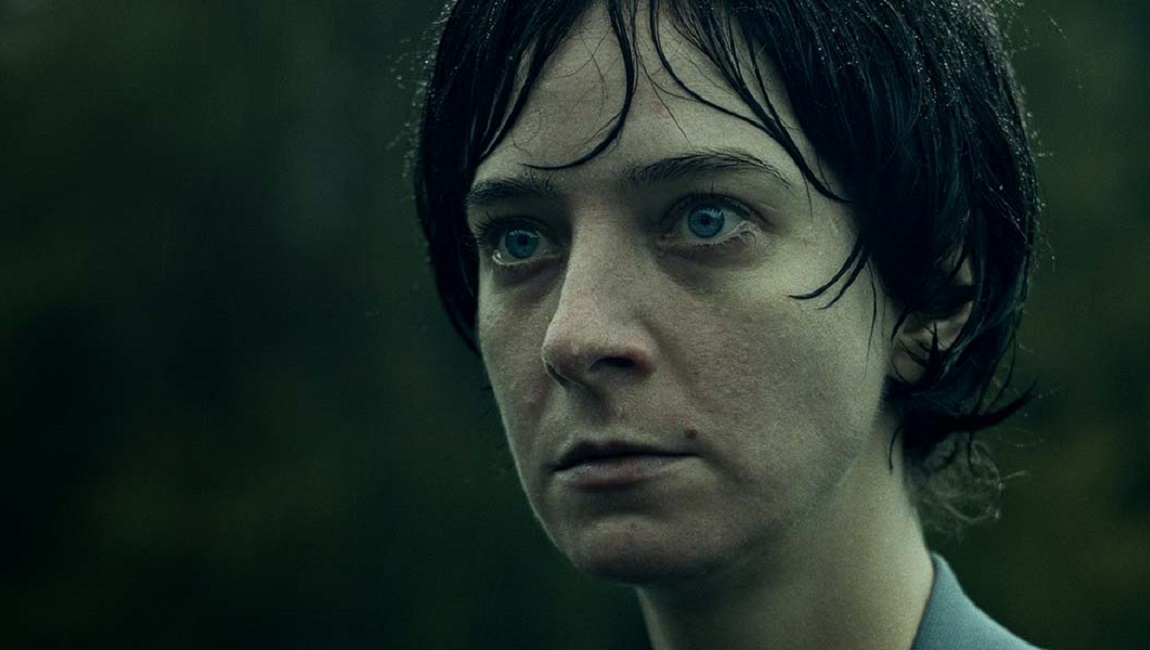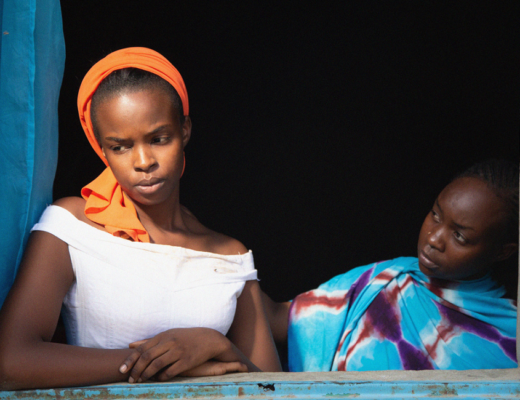Joe McNally says he still sees things through nine-year-old eyes — eyes that, now in their late-’50s, once witnessed the murder of his teenage uncle by the Ulster Volunteer Force. Alessandra Celesia’s The Flats exhumes Joe’s tragedy with him, a tragedy which is also woven into the lives of every person living in the film’s titular flats in the New Lodge section of Belfast, Northern Ireland, and asks whether it is possible to separate the events of the past from the way we remember them.
Joe bore witness not only to unspeakable personal tragedy, but to the broader brutality of the Troubles, the 30-year conflict between Republican and Loyalist Irish people between the 1960s and 1990s. The Flats, enjoying its world premiere as part of the DOX:AWARD section at this year’s CPH:DOX, expresses in bracingly and intimately cinematic terms the ways in which the Troubles persist in the lives of every New Lodge resident today: from Jolene, a young woman who through music interrogates her pain and finds meaning in it, to Angie and Gerard, a couple whose separate flats are ghostly reminders of their violent pasts, and who have to plug their ears whenever they hear “God Save the Queen.”
The Flats employs recreations to bring lucidity to Joe’s spotty and traumatic memories. In some early scenes, we see a young Joe, played by an almost angelic-looking boy named Sean, with bright red hair and eyelashes that frame the same nine year-old eyes Joe can’t escape; his mother, played by Jolene; and his grandmother, played by Angie, standing over the body of a young man in a coffin. There’s a plaster just under the young man’s eye, the same plaster Joe described as covering the exit wound on his murdered uncle’s face. Joe is there, too, directing these memories as best he can. The film doesn’t rely on these recreations as some revelatory tool to unlock the meaning behind trauma or offer the survivor peace, a well-worn tool in contemporary documentary. Its success lies, instead, in the seamlessness between these recreations and the ways Sean, Jolene, and Angie’s real lives as residents of New Lodge come to represent the true repercussions of the Troubles. Celesia’s instincts as a director and Joe’s desire to remember are twin forces that ensure these people are not mere figures representing political history, but living, breathing reminders that history is still ongoing.
The legacy of Bobby Sands also haunts The Flats. Much is made, and rightly so, about the impact of the political sacrifice he made by going on hunger strike, and the numerous personal accounts of his funeral by participants in the film remind us of the power that lies in acts of courage such as the one Sands made. It’s a stark reminder, too, that the violence of occupation, of displacement, of genocide, is with us today. Watching The Flats, it’s almost impossible to ignore Aaron Bushnell, the American soldier who self-immolated in front of the Israeli embassy in Washington, D.C. last month. He feels almost as much of a ghost in the film as Bobby Sands himself.
The efficacy of Sands’, and by extension Bushnell’s, sacrifice is central to The Flats, because they drive Joe’s attempts at recovery and reconciliation. A pressing personal drama about the creeping prevalence of drug dealers in Joe’s neighborhood manifests gradually throughout the film, a problem which he believes can, or indeed may only, be solved by his own hunger strike. Will the people in his life who love him allow him to go through with it, despite their pessimism? And if Joe should die, what will his sacrifice mean? The good news is that Joe does not die. But The Flats, as a document in itself and as an argument about political sacrifice, is proof that Sands’ death only means something because history and the survivors of the Troubles have allowed it to mean something, and that it would have been just as easy otherwise. But the question still remains, and haunts the ending of the film just like a painful memory: is his decision foolish? The Troubles are over, yes, but if The Flats shows us anything, it’s that in many, very real ways, they are not. Not to Joe, not to Jolene, not to Angie, and perhaps not to a single person living in New Lodge, Belfast, Northern Ireland.







